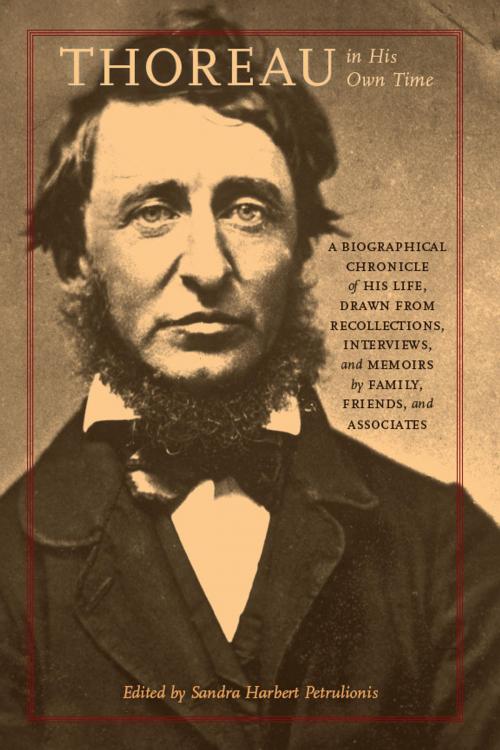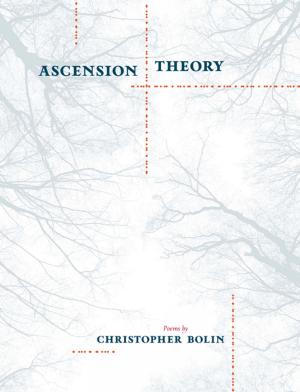Thoreau in His Own Time
A Biographical Chronicle of His Life, Drawn from Recollections, Interviews, and Memoirs by Family, Friends, and Associates
Biography & Memoir, Historical| Author: | ISBN: | 9781609380977 | |
| Publisher: | University of Iowa Press | Publication: | March 15, 2012 |
| Imprint: | University Of Iowa Press | Language: | English |
| Author: | |
| ISBN: | 9781609380977 |
| Publisher: | University of Iowa Press |
| Publication: | March 15, 2012 |
| Imprint: | University Of Iowa Press |
| Language: | English |
More than any other Transcendentalist of his time, Henry David Thoreau (1817–1862) embodied the full complement of the movement’s ideals and vocations: author, advocate for self-reform, stern critic of society, abolitionist, philosopher, and naturalist. The Thoreau of our time—valorized anarchist, founding environmentalist, and fervid advocate of civil disobedience—did not exist in the nineteenth century. In this rich and appealing collection, Sandra Harbert Petrulionis untangles Thoreau’s multiple identities by offering a wide range of nineteenth-century commentary as the opinions of those who knew him evolved over time.
The forty-nine recollections gathered in Thoreau in His Own Time demonstrate that it was those who knew him personally, rather than his contemporary literati, who most prized Thoreau’s message, but even those who disparaged him respected his unabashed example of an unconventional life. Included are comments by Ralph Waldo Emerson—friend, mentor, Walden landlord, and progenitor of the spin on Thoreau’s posthumous reputation; Nathaniel Hawthorne, who could not compliment Thoreau without simultaneously denigrating him; and John Weiss, whose extended commentary on Thoreau’s spirituality reflects unusual tolerance. Selections from the correspondence of Caroline Healey Dall, Maria Thoreau, Sophia Hawthorne, Sarah Alden Bradford Ripley, and Amanda Mather amplify our understanding of the ways in which nineteenth-century women viewed Thoreau. An excerpt by John Burroughs, who alternately honored and condemned Thoreau, asserts his view that Thoreau was ever searching for the unattainable.
The dozens of primary sources in this crisply edited collection illustrate the complexity of Thoreau’s iconoclastic singularity in a way that no one biographer could. Each entry is introduced by a headnote that places the selection in historical and cultural context. Petrulionis’s comprehensive introduction and her detailed chronology of personal and literary events in Thoreau’s life provide a lively and informative gateway to the entries themselves. The collaborative biography that Petrulionis creates in Thoreau in His Own Time contextualizes the strikingly divergent views held by his contemporaries and highlights the reasons behind his profound legacy.
More than any other Transcendentalist of his time, Henry David Thoreau (1817–1862) embodied the full complement of the movement’s ideals and vocations: author, advocate for self-reform, stern critic of society, abolitionist, philosopher, and naturalist. The Thoreau of our time—valorized anarchist, founding environmentalist, and fervid advocate of civil disobedience—did not exist in the nineteenth century. In this rich and appealing collection, Sandra Harbert Petrulionis untangles Thoreau’s multiple identities by offering a wide range of nineteenth-century commentary as the opinions of those who knew him evolved over time.
The forty-nine recollections gathered in Thoreau in His Own Time demonstrate that it was those who knew him personally, rather than his contemporary literati, who most prized Thoreau’s message, but even those who disparaged him respected his unabashed example of an unconventional life. Included are comments by Ralph Waldo Emerson—friend, mentor, Walden landlord, and progenitor of the spin on Thoreau’s posthumous reputation; Nathaniel Hawthorne, who could not compliment Thoreau without simultaneously denigrating him; and John Weiss, whose extended commentary on Thoreau’s spirituality reflects unusual tolerance. Selections from the correspondence of Caroline Healey Dall, Maria Thoreau, Sophia Hawthorne, Sarah Alden Bradford Ripley, and Amanda Mather amplify our understanding of the ways in which nineteenth-century women viewed Thoreau. An excerpt by John Burroughs, who alternately honored and condemned Thoreau, asserts his view that Thoreau was ever searching for the unattainable.
The dozens of primary sources in this crisply edited collection illustrate the complexity of Thoreau’s iconoclastic singularity in a way that no one biographer could. Each entry is introduced by a headnote that places the selection in historical and cultural context. Petrulionis’s comprehensive introduction and her detailed chronology of personal and literary events in Thoreau’s life provide a lively and informative gateway to the entries themselves. The collaborative biography that Petrulionis creates in Thoreau in His Own Time contextualizes the strikingly divergent views held by his contemporaries and highlights the reasons behind his profound legacy.















